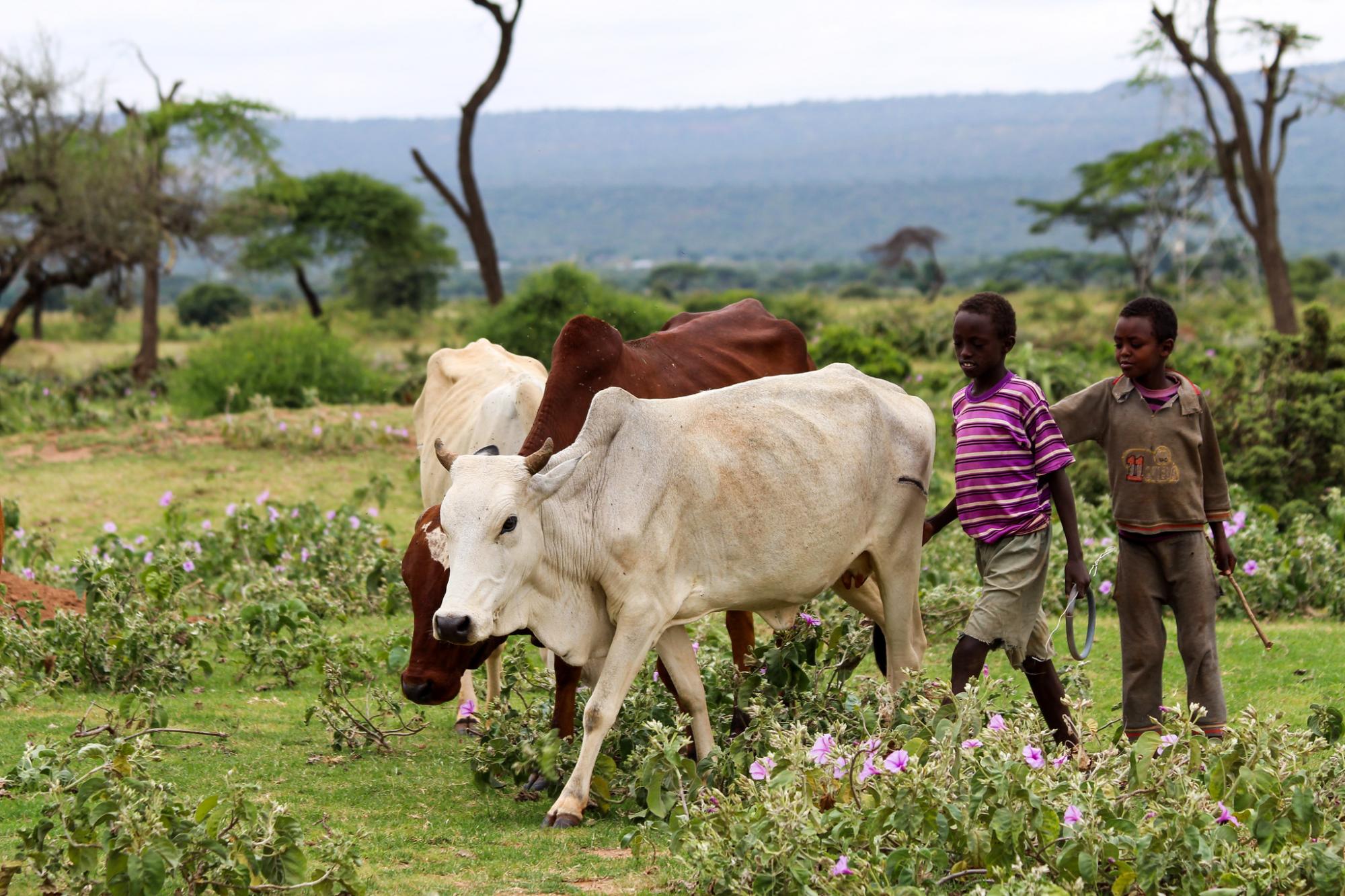
Shaping Africa’s Food Systems Through Sustainable Livestock Innovations – 6 September 2024
Core message
‘Today we are celebrating. The cow is in the room!’ —Siboniso Moyo, deputy director general of partnerships and impact at the International Livestock Research Institute (ILRI)
With Africa’s population expected to reach 2.5 billion by 2050, the demand for animal-sourced foods is projected to grow over 50% by 2030. This presents both opportunities and challenges because while livestock can bolster food security, nutrition, and livelihoods, it also contributes to greenhouse gas emissions and faces risks from climate change.
“The path forward is clear: we must innovate, advocate, and invest in sustainable livestock systems to meet these challenges head-on. Together, we can ensure that livestock continues to drive economic security, food safety, and resilience across the globe.” —Appolinaire Djikeng, director general of ILRI
It is against this backdrop that the plenary event "Shaping Africa’s Food Systems Through Sustainable Livestock Innovations," was held on 6 September 2024 at the Africa Food Systems Forum (AFSF) in Kigali, Rwanda. Aligned to the Forum’s theme–Innovate, Accelerate and Scale: Delivering Food Systems Transformation in a Digital and Climate Era—experts discussed the urgent need to enhance livestock practices to sustainably increase protein production in Africa. Moderated by Moyo, the session highlighted how innovative approaches can enhance food security, nutrition, and environmental sustainability across Africa, while improving the livelihoods of smallholder farmers. Discussions also addressed government and donor strategies to support these innovations, as well as key challenges to rapid implementation.
Key takeaways
-
The livestock sector is essential to transforming Africa's food systems. CGIAR is currently developing the Sustainable Animal and Aquatic Food Systems Science Program, with Siboniso (Boni) Moyo stating, “We look forward to ongoing collaboration to integrate animal proteins into a holistic food systems approach.”.
-
Africa's diverse livestock systems can unlock better livelihoods and a healthier planet. Livestock solutions address challenges such as animal health, antimicrobial resistance (AMR), nutrition, women's empowerment, youth employment, biodiversity, climate mitigation, adaptation, and more.
-
Climate-smart livestock innovations must be paired with strong business models and supportive policies to drive innovation and scale. Read more from the side event ‘Herding Change for Climate-Smart Innovations’.
What the panelists had to say
“For innovations to succeed, they must be localized and tailored to the needs of farmers and value chain actors. By integrating new technologies into systems that fit the local context, we can overcome barriers to adoption.” —Djikeng, ILRI
“We have adopted high-density grazing, which improves rangeland health and carbon sequestration while boosting productivity and profitability. This shows how modern practices, combined with indigenous cattle, can ensure environmental sustainability.” —Naweed Mulla, Mbogo Ranches
“Despite the lack of funds for research, we rely on collaborations with donors and universities to drive innovation. Often, the best innovations come directly from successful livestock farmers sharing their practices.” —Hon. Abdul Mhinte, Tanzania Ministry of Livestock and Fisheries
“Governments need to change their policies to encourage investments in climate-smart livestock practices. Donors want to support governments committed to these changes and tracking progress.” —Frauke Jungbluth, World Bank
Looking forward
Shirley Tarawali, assistant director general at ILRI and chair of the Global Agenda for Sustainable Livestock, called for more time for livestock discussions at next year’s forum as key issues were left unaddressed including: the potential of diverse livestock value chains for youth entrepreneurship, the impacts of conflict and climate change, opportunities for young women in poultry and small ruminants, the role of aquatic foods as a viable source of animal protein, indigenous breeds and biodiversity, and the challenge of antimicrobial resistance.
The session underscored the need to continue these important conversations, ensuring that the livestock sector is continuously recognized for the vital role it continues to play in transforming food systems in Africa.